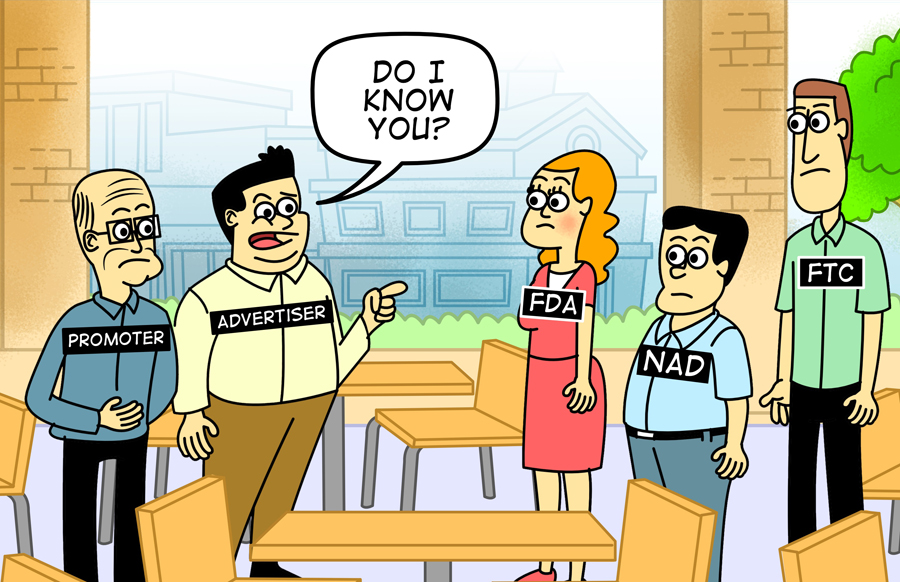Promotion and Advertising Part 2 – Agency Roles
Advertising, FDA, FTC, Intended Use
This Device Tip was contributed by Judy Martin, an Associate with Bob Duffy Associates. Judy has 30 years’ experience in the medical device and IVD industries. She has particular expertise in device labeling, promotion and advertising, including regulatory aspects of website and social media promotion, promotional review process development and claims substantiation. Judy co-authored the RAPS Online University course Medical Devices: Advertising and Promotion in the US. Judy is also experienced in 510(k) submissions, design control, process improvement, auditing, recall management, quality system management, including ISO 13485:2016 and FDA remediation activities. Judy has a BA in Biology, a BS in Medical Technology and an MBA. If you need labeling or advertising assistance, you can contact Bob, or Judy directly at regulatory@jhmartin.org.
This is the second in a series of devices tips on promotion and advertising of medical devices. This device tip focuses on the roles of agencies that may be involved in the review of promotional activities and subsequent enforcement actions. The agency and criteria for evaluation may differ depending on the type of product you market.
Here’s the tip:
Become familiar with the roles of the entities that regulate and evaluate the advertising and promotion of your product.

Device advertising is evaluated by a number of different agencies. The FDA and the Federal Trade Commission (FTC) share the responsibility for regulation and enforcement of device advertising, but the separation of their responsibilities is not always clear cut. By regulation, FDA’s authority is limited to “restricted” devices, but FDA has historically taken the position that advertising and promotion can be labeling. Therefore FDA will sometimes claim authority over device advertising. Since advertising of a device can establish the intended use of a device (see an earlier Device Tip on Intended Use), FDA can use this route to regulate advertising of devices that are not classified as “restricted” devices. In many cases, enforcement actions are conducted jointly between FDA and FTC.
More Info
The FTC regulates advertising of food, dietary supplements, cosmetics, over-the-counter drugs, and devices that are not considered “restricted.” The FTC does not evaluate advertising based on the intended use of the device, but based on competent and reliable scientific evidence to support claims made regarding the product. The FTC has issued a number of guidance documents and policies to help advertisers understand its standards for evaluation. Topics of these standards include comparative advertising, unfairness in advertising, claims substantiation and several specific advertising topics.
There are additional laws and regulations beyond those used by FDA and FTC that apply to advertising. The Lanham Act allows competitors to file a claim related to deceptive advertising. State consumer protection laws provide enforcement tools separate from the federal government. The National Advertising Division of the Better Business Bureau (NAD) is a forum for voluntary resolution of advertising disputes, but if a company declines to comply with the recommendations of NAD, the complaint is often forwarded to FDA or FTC for further evaluation.
All of these entities and regulations wield a variety of enforcement tools that can cause significant impact to your company. Therefore, it is important to understand what applies to your product so you can create both effective and compliant advertising and promotional campaigns.
